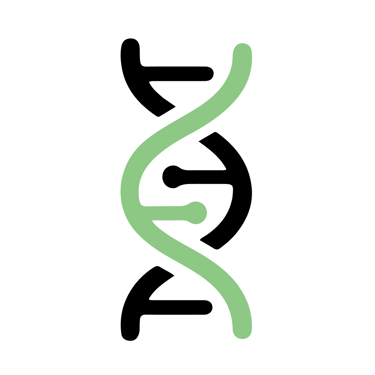Creatine's Effects: From Muscle Fuel to Mental Edge
Dive into the surprising science of creatine, the supplement famous for building muscle, and discover its incredible benefits beyond the gym. Learn how creatine acts as a "backup battery" for your brain, helping to fight off mental fatigue and brain fog from sleepless nights. Uncover how this powerhouse compound may even support deeper, more restorative sleep after your toughest workouts. It's not just about bigger muscles—it's about a sharper mind and a better night's rest.
SUPPLEMENTPERFORMANCE
Samuel Kim
8/15/20253 min read


You've probably heard of creatine as the go-to supplement for athletes looking to bulk up and get stronger. It's a household name in the fitness world, and for good reason. But what if the same magic that helps you crush your workouts also has a surprising benefit for your brain? New research is uncovering creatine’s incredible role in boosting mental performance and supporting recovery, proving it's more than just a muscle builder.
Your Muscle's Fuel Gauge
When you're pushing for that last rep or sprinting to the finish line, your body relies on a burst of energy from a molecule called adenosine triphosphate (ATP). Think of ATP as your body's high-octane fuel for quick, explosive efforts. The problem is, you burn through it in a flash.
This is where creatine swoops in. Stored in your muscles, creatine helps your body rapidly regenerate ATP. It's like having a quick-charge battery pack for your muscles, allowing you to power through those extra reps, lift heavier weights, and break through performance plateaus. This is the classic, well-documented benefit that put creatine on the map.
The Brain's Backup Battery
That heavy, foggy feeling after a sleepless night? That's your brain running on fumes. Just like your muscles, your brain is a massive energy consumer, and when it's low on power, your cognitive abilities take a hit. Your memory, focus, and decision-making all slow down.
Interestingly, creatine also accumulates in your brain, where it acts as a mental energy reserve. Recent studies suggest that creatine supplementation can help your brain fight through that mental fatigue. By boosting ATP production in the brain, it can help improve processing speed and memory, even when you're sleep-deprived. In one 2024 study, a single dose of creatine helped individuals maintain better cognitive performance during a period of 21 hours without sleep. It’s like a much-needed mental power-up when you can't get the rest you need. 🧠
Supercharging Your Recovery
The story doesn't end with just coping with a lack of sleep. Creatine may also play a role in promoting better rest after a tough workout. After a brutal training session, your muscles are like a construction site, undergoing a massive repair and rebuilding effort. This critical process is most active during deep, restorative sleep.
The logical connection is that creatine helps your muscles handle the intense stress of exercise more efficiently. By doing so, it may facilitate the recovery process, which in turn could lead to a greater need for and a longer duration of sleep to complete the repair work. In fact, a recent 2024 study found that women who took creatine slept for a significantly longer period on nights after they did resistance training, which suggests that creatine may help your body signal a greater need for that all-important recovery time.
In a nutshell, creatine is a fascinating supplement that works on multiple fronts. It's not just about bigger muscles; it's about a smarter, more resilient body and mind.
Don't take my word for it. Please read the following articles/researches:
10 Health and Performance Benefits of Creatine - Healthline. A comprehensive overview of creatine's various health and athletic performance benefits.
Creatine - Mayo Clinic. A guide from the Mayo Clinic detailing the uses, safety, and potential side effects of creatine supplementation.
The effects of creatine supplementation on cognitive function in adults: a systematic review and meta-analysis - Frontiers in Nutrition. A scientific review and analysis of existing research on how creatine supplementation affects cognitive function in adults.
Creatine and Brain Health and Function - PubMed Central. This paper explores the mechanisms by which creatine supports brain health and function, including its role in energy metabolism.
Single dose creatine improves cognitive performance and induces changes in cerebral high energy phosphates during sleep deprivation - ResearchGate. A research study demonstrating that a single, high dose of creatine can improve cognitive function and energy levels in the brain after a long period of sleep deprivation.
Creatine supplementation, sleep deprivation, cortisol, melatonin and behavior - Forschungen im Sportinstitut. This study examines the effect of creatine on mood and cognitive performance during 24 hours of sleep deprivation, finding it helps maintain mental resilience.
Creatine Improves Total Sleep Duration Following Resistance Training Days versus Non-Resistance Training Days among Naturally Menstruating Females - PubMed. A specific research paper reporting that creatine supplementation led to an increase in total sleep duration for women on the nights following a resistance training session.
Links to products I am buying or have bought in the past:
© 2025. All rights reserved.
